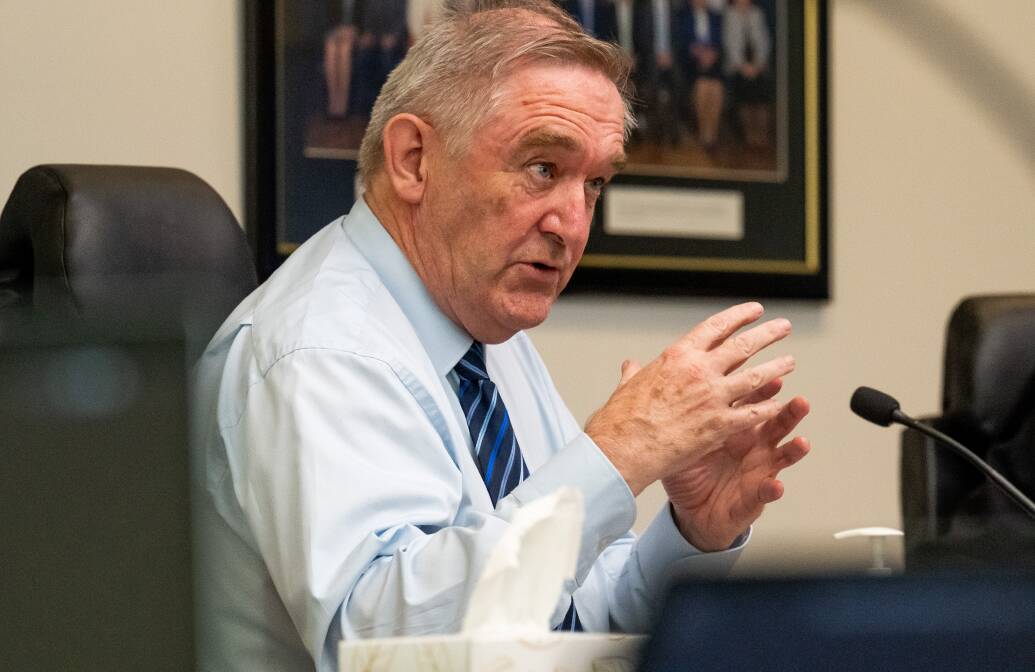The ACT has been urged to strengthen palliative care funding before Canberrans can access voluntary assisted dying.
Calvary Health Care told an inquiry into an assisted dying bill the government needed to ensure health funding for palliative care was not sidelined when the scheme came into effect.
"Having palliative care well funded and adequate and well supported is very very important," Calvary palliative care physician Frank Brennan told the inquiry on Wednesday.
"The worst possible story is where palliative care is sidelined and everyone is focusing on VAD."
The Australia New Zealand Society of Palliative Medicine also fronted the inquiry and similarly urged the government to ensure there was strong investment in palliative and end-of-life care before voluntary assisted dying becomes available.
The society said this included addressing workforce shortages, initiatives to support high quality palliative care and increased support for carers.

The society also wanted to ensure there was training for health practitioners who were involved in voluntary assisted dying.
"The lack of medical education in palliative care, the taboo nature of the topic, and the limited support available for medical practitioners training and consult time, all hinder access to quality palliative care for many patients," the society's submission said.
Calvary also expressed concern at what the ACT's proposed laws could mean for its health facilities in the capital.
The organisation is Catholic and is against voluntary assisted dying. It runs two private hospitals in the territory: Calvary Bruce Private Hospital and John James Hospital.
The ACT's proposed bill said health facilities are not allowed to hinder access for those who want to access voluntary assisted dying.
Calvary is concerned it could be forced to allow a health professional to enter one of their hospitals without undergoing the organisation's credentialing processes.
Ross Hawkins, Calvary's southern NSW and ACT regional chief executive, said voluntary assisted dying was not a service the organisation would offer meaning an outside health professional would not fall under the credentials for the hospital.
"And that to me causes great concern of what that would look like for someone to be able to come on to my facility and provide a service when I haven't credentialed them, I have not gone through all of the safety models of care that sit within my licensing arrangements," Mr Hawkins said.
Calvary previously ran the Bruce public hospital and Clare Holland House, which is a hospice. The facilities were compulsorily acquired by the ACT government last year. The government has repeatedly denied the takeover had anything to do with religion.
Mr Hawkins said Calvary also wanted to make sure the government was open about its palliative care funding.
"I think the key for us is to make sure ... that there's appropriate levels of reporting and visibility so that we continue to see what's being spent on healthcare in the ACT and its a continuing level of investment," he said.
Under the ACT's legislation, a person will be able to access voluntary assisted dying if they have an illness that is advanced, progressive, and expected to cause death. A person must be "suffering intolerably" and have decision-making capacity.
The territory's scheme will not require an expected time frame for a death. In all other states it ranges from six to 12 months.
Hearings for the bill will continue until the end of the week.







